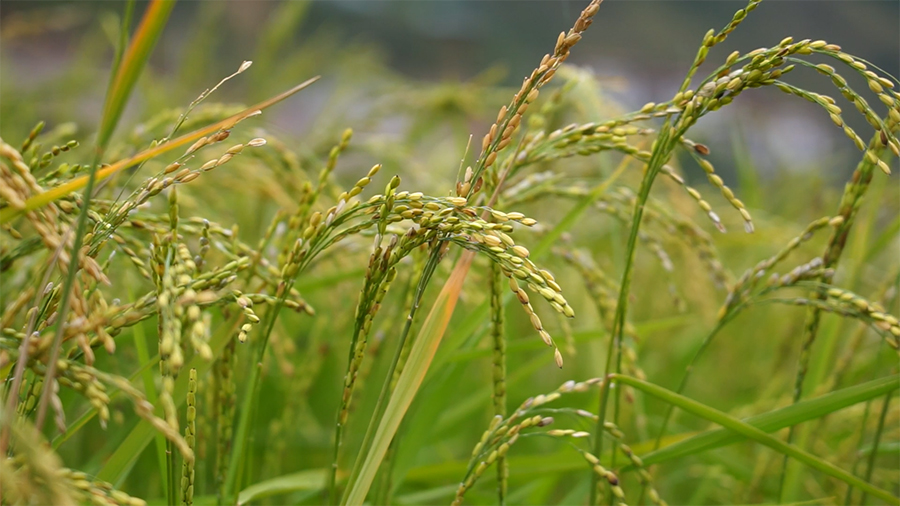
Ensuring food security is on the manifestos of all five political parties. From transitioning to commercial farming to reviewing the country’s agricultural policies to allowing foreign workers to address labour shortages, and easing marketing issues facing farmers across the country, the five political parties have pledged to transform the agriculture sector for the better in the next five years. Besides, all the parties have pledged to improve road networks, mechanize farming, and deliver adequate irrigation water for farmers across the country.
Bhutan Tendrel Party or BTP has pledged to prioritize the transition from subsistence to commercial farming.
The party says it intends to achieve the transition by using modern technologies, adopting high-yielding and climate-resilient crop varieties, and implementing enabling policies that provide access to finance, land, labour, and markets.
The party intends to double annual export revenue from agriculture to Nu 7bn by 2029.
The party also promises to facilitate online trading of agriculture commodities by setting up essential infrastructure and networks in collaboration with relevant agencies.
BTP has also pledged to facilitate youth cooperatives, farmers’ groups, and retirees to take up commercial farming and agro-livestock entrepreneurship.
Druk Nyamrup Tshogpa, DNT, promises to increase the agriculture sector’s contribution to GDP to Nu 50bn by 2029.
The party has also pledged to allow landowners to convert land from Chuzhing or wetland based on requirements.
The party has promised to provide cash incentives to farmers actively cultivating on wetland.
The party also promises to test and upscale initiatives such as hydroponic and aeroponics for high-quality produce throughout the year.
Meanwhile, Druk Phuensum Tshogpa promises to undertake a comprehensive review of the country’s agricultural policy.
The party has also pledged to identify Special Agricultural Zones to ensure economy of scale and productivity.
In addition, the party promises to strengthen the Bhutan Development Bank to make credit more accessible and affordable for farmers.
Similarly, the party assures strengthening the Food Corporation of Bhutan to serve as a national food bank stocked with local produce in addition to its existing mandates of identifying and broadening markets for local produce.
Druk Thuendrel Tshogpa pledges to increase the agriculture sector’s contribution to GDP to Nu 30bn.
The party has also promised to make Bhutan food self-sufficient in at least 10 basic crops in the next five years.
In addition, DTT has promised to look into the possibility of purchasing large commercial farming areas in Australia.
The party also pledges to establish Agri-Food Eco-Hubs in four regions for easy market access and value addition to reduce post-harvest losses.
People’s Democratic Party says the party is committed to increasing farmers’ income by five-fold and making significant progress toward achieving food and nutrition self-sufficiency.
The party promises to commission a major land management programme that will facilitate the use of government land for large-scale agricultural ventures to interested private sector and farmers.
The party says under the programme, PDP will also allow the conversion of wetlands to alternative land use and farming practice.
In addition, the PDP promises to set up a Nu 20 M worth of processing and production facility in 50 strategic locations to facilitate grading, sorting, processing, packaging, and marketing.
BTP, DNT, and PDP have pledged to allow the hiring of foreign workers to address the farm labour shortage.
Meanwhile, BTP, DNT, DPT, and DTT have promised crop insurance for damages caused by natural disasters.
All five parties have pledged to construct new farm roads wherever required and maintain the existing farm roads to improve access to markets.
In addition, five parties have also promised the provision of improved irrigation channels and chain-linked fencing to safeguard crops against wild animal attacks.
Chain-link fencing is an ongoing project that is being implemented with fund support from the UNDP GEF project.
Currently, the country imports most of the food requirements.
As a result, food imports were three times higher than exports in 2021 resulting in a food trade deficit of over Nu 9bn.
Singye Dema
Edited by Phub Gyem








